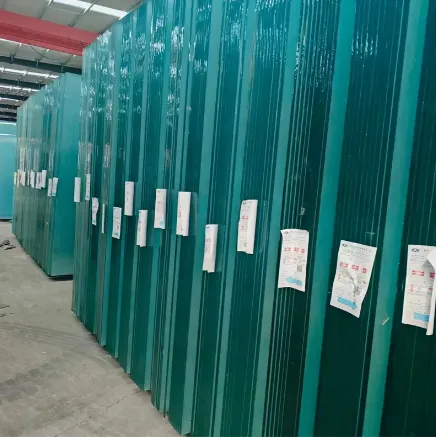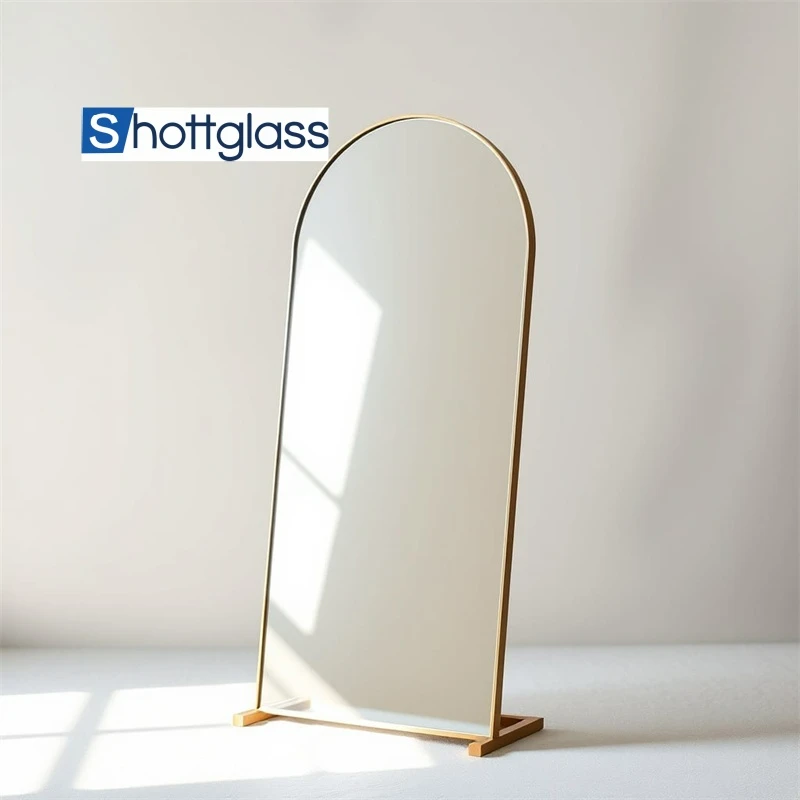Nov . 29, 2024 09:58 Back to list
Float Glass Panels in Solar Energy Applications: Maximizing Light Transmission
Float glass panels play a crucial role in the efficiency of modern solar energy applications. Their ability to maximize light transmission and reduce energy loss makes them an ideal material for solar panels and other renewable energy projects. By using different variations like reflective float glass, transparent glass sheets, and ultra clear glass sheets, designers and engineers can significantly improve the performance of solar systems. In this article, we will explore the various ways float glass panels contribute to solar energy applications, and how specific types of glass can enhance light transmission and overall efficiency.

The Importance of Reflective Float Glass in Solar Panels
One of the most innovative uses of reflective float glass in solar energy systems is its ability to manage light. Reflective float glass is designed to reflect a portion of sunlight while still allowing the majority of the light to pass through. This feature is particularly useful in concentrated solar power (CSP) systems, where managing the intensity of sunlight is critical for efficiency.
By incorporating reflective float glass into solar panel designs, the panels can reduce overheating and ensure a consistent level of energy absorption. This type of glass is especially valuable in areas with extreme sunlight, as it helps to balance light transmission and reflection, optimizing the system's performance.
Transparent Glass Sheets for Maximum Light Penetration
For solar energy applications, transparent glass sheets are essential for maximizing the amount of sunlight that reaches photovoltaic cells. The clarity and purity of transparent glass sheets allow for maximum light penetration, ensuring that the solar cells receive as much sunlight as possible. This is a key factor in improving the overall efficiency of solar panels, as even slight obstructions can reduce their ability to generate power.
Moreover, transparent glass sheets are commonly used in the construction of solar windows, which not only generate energy but also allow natural light to enter buildings. These windows offer a dual benefit: they help reduce energy consumption for lighting while contributing to renewable energy generation.
Ultra Clear Glass Sheets for High-Efficiency Solar Systems
When it comes to solar panels, the quality of the glass can make a significant difference in their efficiency. Ultra clear glass sheets are often preferred for high-performance solar systems due to their exceptional transparency and low iron content. These glass sheets allow almost 100% of sunlight to pass through without any tint or distortion, making them ideal for applications where maximum light transmission is critical.
The use of ultra clear glass sheets in solar panels ensures that no energy is lost due to reflection or absorption, leading to higher energy yields. This type of glass is particularly beneficial in large-scale solar farms, where efficiency gains can translate into significant energy production increases.
Glass Sheet Transparent: The Key to Efficient Solar Collectors
In addition to solar panels, glass sheet transparent materials are widely used in solar collectors, which are essential components of solar water heating systems. The transparent nature of these glass sheets allows for the unimpeded passage of sunlight, which is then used to heat water or other fluids. The efficiency of these systems depends heavily on the quality of the glass used, as higher light transmission leads to faster and more efficient heating.
The durability and weather resistance of glass sheet transparent materials also make them a popular choice for outdoor solar installations. They are designed to withstand harsh environmental conditions, such as extreme temperatures and UV exposure, without losing their transparency or structural integrity.
Translucent Sheets for Glass: An Alternative for Diffused Light Applications
In certain solar energy applications, diffused light is more desirable than direct sunlight. Translucent sheets for glass are often used in these scenarios, as they scatter light while still allowing it to pass through. This type of glass is particularly useful in applications like solar greenhouses, where evenly distributed light is essential for plant growth.
Translucent sheets for glass can also be found in some solar thermal systems, where diffused light helps maintain consistent heating. By evenly spreading sunlight, these sheets ensure that solar collectors can operate at optimal efficiency without overheating or creating hot spots.
Float glass panels are an indispensable component in modern solar energy applications, from solar panels to thermal collectors. By selecting the right type of glass, such as reflective float glass, transparent glass sheets, and ultra clear glass sheets, engineers can maximize light transmission and improve the overall efficiency of solar systems. Additionally, translucent sheets for glass offer a unique solution for diffused light applications, expanding the versatility of float glass panels in renewable energy projects. As the demand for sustainable energy solutions continues to grow, float glass will remain a key material in advancing the efficiency and effectiveness of solar technologies.
-
Types of Reflective Glass
NewsNov.17,2025
-
What Is Dichroic Glass?
NewsNov.17,2025
-
Smart LED mirrors can have touch controls
NewsNov.17,2025
-
Laminated glass improves energy efficiency
NewsNov.17,2025
-
Insulated glass enhances building comfort
NewsNov.17,2025
-
Acid etched glass offers elegant privacy
NewsNov.17,2025
Related PRODUCTS














